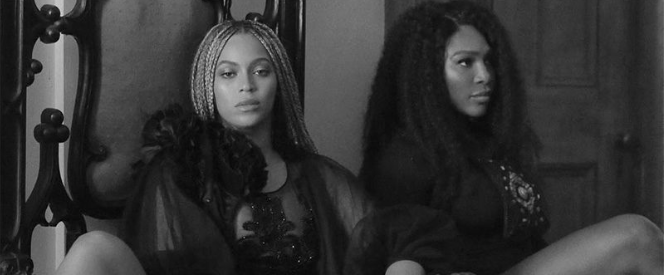Just as the world grew darker with the loss of music legend Prince, Beyoncé exploded the music industry by dropping another one of her notorious surprise albums. On the night of April 23rd, Beyoncé released “Lemonade” on HBO — instead of provocative songs on her sex life, however, she seemingly calls out her husband Jay-Z for his extramarital affairs.
Rumors of Beyoncé and Jay-Z’s rocky marriage and Jay-Z’s supposed infidelity came to a peak during the 2014 Met Gala, when TMZ released elevator footage of Beyoncé’s sister Solange physically attacking Jay-Z. After two years, it seems as though Beyonce is ready to put her personal life in the open, which she does during her hour-long album laden with raw emotions. “Lemonade” features 12 songs that flow smoothly into each other; the setting, costumes and narratives seem to tell a chronological progression of her thoughts towards her suspectedly unfaithful husband.
The album starts on a heavy note. “Pray You Catch Me” and “Hold Up” are filled with intensity and drama that immediately both captivates and disturbs the audience. Her music and dance typically have an intoxicating quality about them, but the truly powerful aspect of “Lemonade” comes from her segments of spoken word. As she floats in an underwater room, she speaks about the torturous pain, madness and self-doubt she felt as she came to terms with the realities of her marriage. She’s confused, infuriated and hurt, so she opens the visual album by speaking about her suspicions. Should she act more like his mistresses? Should she dress differently? Act more feminine and affectionate? These are real thoughts that real women contemplate in similar situations: what did I do wrong; why wasn’t I good enough? She humanizes herself during this unfiltered discourse, but it doesn’t last for long. The picture- perfect power couple image that she and Jay-Z had constructed over the years comes quite literally flooding out of a mansion as she shoves the doors open. Beyoncé effectively turns the tables on men by featuring an all- black, female cast that emanates power. From this point on, Beyoncé embraces her vulnerability and reaffirms her confidence in herself. She affirms that he’s the one who should be ashamed and afraid of losing such a woman in his life.
“Lemonade” shows Beyoncé as an empowered female is and ought to be: unafraid of showing sorrow and weaknesses, threatening and commanding and finally, forgiving and merciful on her own terms. To top it off, she persuaded Jay-Z himself to make a cameo appearance during the heart-wrenching “Sandcastles.” As if her lyrics didn’t posit her dominating influence enough, the video features Jay-Z nestling in her shoulders and embracing her feet.
On the surface, we might gossip about the identities of Jay-Z’s “mistresses,” or discuss her courage in exposing the scandals of her partner. Yet the album goes far beyond that. As Malcolm X quotes in the video, the “most disrespected person in America is the Black woman.” Beyond the issues of couple dynamics, the message that needs to be taken away is her efforts to show women of color that they don’t need to endure injustices for the sake of financial or emotional stability in their men. They no longer need to seek comfort in societal acceptance. Serena Williams with her body, Zendaya with her hair, Winnie Harlow with her vitiligo: these women faced discrimination of different sorts, and they all united through Beyoncé’s message. Instead of taking what society deems to be good or bad, attractive or unattractive, acceptable or unacceptable and considering it law, Beyoncé encourages us to subvert those notions and feel comfortable in our positions of influence and power—after all, she’s done so herself.



